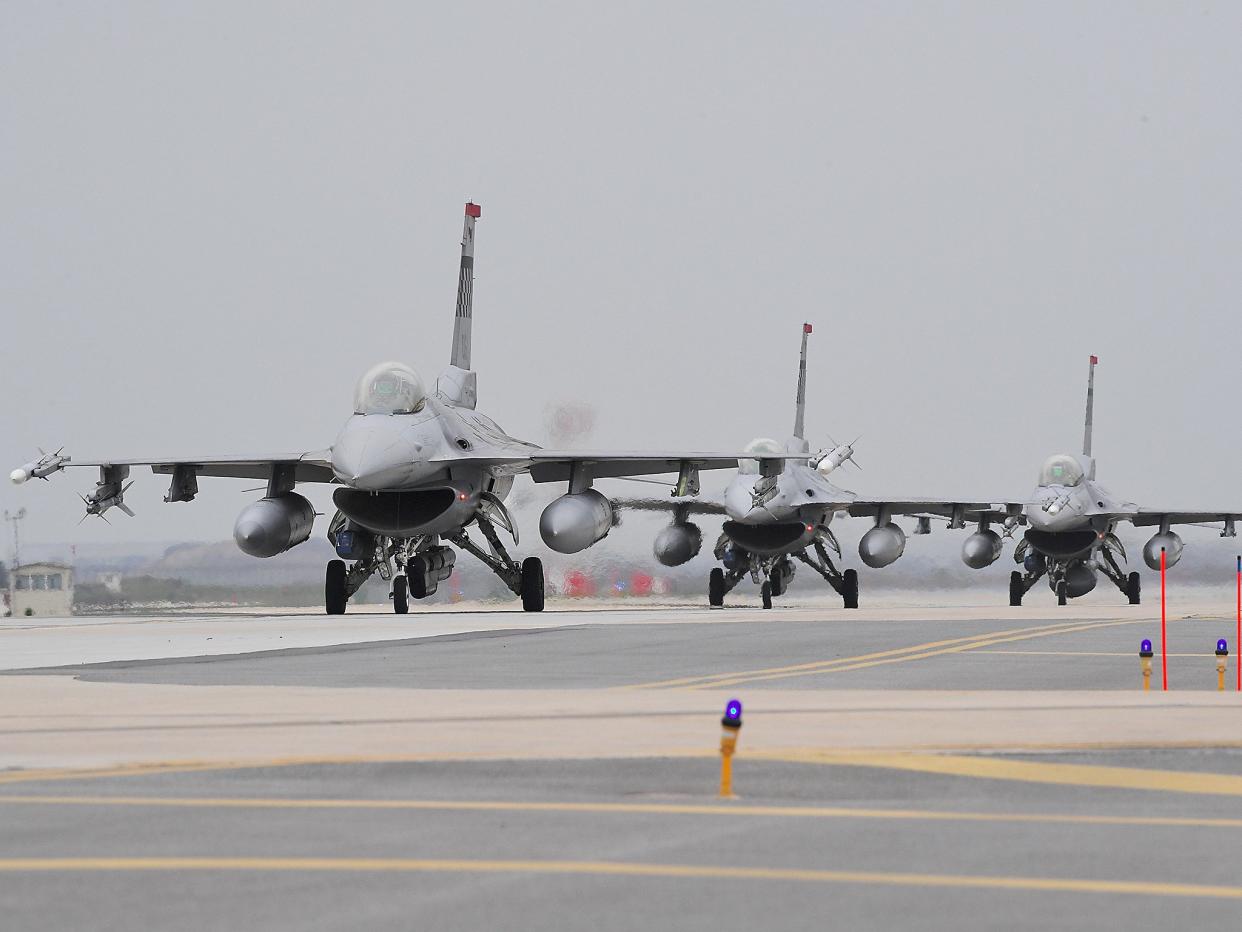Theresa May will urge Nato to step up the fight against Isis after Manchester bomb attack

Theresa May will urge Nato to step up the fight against the Isis terror group in the Middle East in the wake of the Manchester bomb attack.
The Prime Minister will call for the military alliance to formally join operations against the Islamic militants in its stronghold, when she meets fellow heads of government in Brussels.
However – underlining the continued terror threat in Britain – she will then cut short a planned two-day trip to a summit of G7 countries to return to Downing Street.
At present, Nato supports the US-led Global Coalition to Counter Isis in Iraq and Syria, by sharing information collected by its surveillance aircraft, for example.
But in Brussels Ms May will throw her weight behind a proposal put forward by Jens Stoltenberg, the Nato Secretary General, for the alliance to become a “full member” of the coalition.
The move would see Nato expand air-to-air refuelling and other support for coalition planes, also contributing training and the expertise it has gained from the war in Afghanistan.
The Prime Minister will point to the deaths of 22 people at the hands of a suicide bomber in Manchester as strengthening the need for a “strong, capable and united Nato” to do more to fight terror.
The attack was a “callous and cowardly act that was all the more sickening in the way it targeted innocent and defenceless children and young people”, she will tell Nato leaders.
Ms May is expected to say: “Our unity in responding to common threats is our most potent weapon.
“We must redouble our resolve to meet the threats to our shared security, whether from terrorism or Russia.”
The inclusion of Russia on a list of security threats alongside terrorism is likely to raise eyebrows, given Vladimir Putin’s offer to step up counter-terror cooperation after the Manchester tragedy.
However, the Prime Minister has previously described her Russia policy as “engage but beware”. A senior government official told The Independent: “That remains our position”.
France and Germany also support Nato becoming a full member of the anti-Isis coalition, but on the basis it is symbolic – and not involving Nato planes in a combat role.
The UK has already sent 1,250 military personnel to the region and the Royal Air Force has conducted more than 1,200 air strikes in Iraq and Syria – more than any other coalition country bar the US.
Mr Stoltenberg said: “Nato joining the coalition will also provide a better platform for coordinating the activities of Nato allies ... in the fight against terrorism.
“It sends a strong and clear message of unity in the fight against terrorism and especially in light of the terrorist attacks in Manchester.”
Later on Thursday, Ms May will move on to the G7 summit in Sicily, where she will lead the counter-terrorism discussion and join talks on Russia, Syria, North Korea, trade and climate change.
However, she will miss discussions on Africa, food security and migration by returning to Britain late on Friday, rather than on Saturday as originally planned.
The official said the early departure followed the decision to raise the threat level to “critical”, its highest for the first time in 10 years, meaning another attack is feared to be imminent.
However, the election battle is likely to be back in full swing by the weekend, after the parties agreed to resume national campaigning on Friday.

 Yahoo News
Yahoo News 
